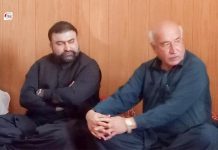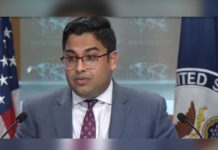The Balochistan region is marked by two prevailing ideologies in nationalist politics. Advocates aligned with Ghous Bakhsh Bizenjo seek resolution within the framework of the Pakistani Federation, addressing Baloch issues by integration. Conversely, proponents linked to Khair Bakhsh Marri pursue Balochistan’s independence, viewing it as crucial for safeguarding the Baloch nation’s identity, engaging in a two-decade-long struggle.
Following the 1970s National Awami Party government’s ousting and the subsequent arrests of Baloch leaders, the divergent paths of these ideologies became evident. Ghous Bakhsh Bizenjo chose to persist in advocating for Baloch rights within the Federation, while Khair Baksh Marri dismissed parliamentary politics in Pakistan as futile, dedicating himself to the Baloch insurgency.
The historical dynamic between Balochistan and Pakistan, stemming from forced annexation, has been marred by coercion and tyranny. Continuous efforts to suppress freedom movements have fostered the perception in Balochistan that the relationship leans more towards colonization, necessitating sustained coercion and violence.
In the 21st century, tensions escalated, with the Baloch people increasingly supporting the freedom movement. General Pervez Musharraf, the military dictator, issued threats that the Baloch will be hit in a way that they will not even realise. In response, Khair Bakhsh Marri asserted a shift from the Baloch stance of the 1970s, signaling a readiness to confront Pakistan on equal terms.
General Musharraf’s implementation of counter-insurgency policies initiated two decades of repression and tyranny in Balochistan. State oppression gave rise to widespread resistance, manifesting in various forms across Balochistan. This resistance underscores the prevailing sentiment that the Baloch-Pakistan relationship is one of dominator and subjugated. Recent political events further reinforce the conviction that Baloch issues cannot be resolved within Pakistan’s parliamentary system; only through resistance can the Baloch people secure their rights.






























